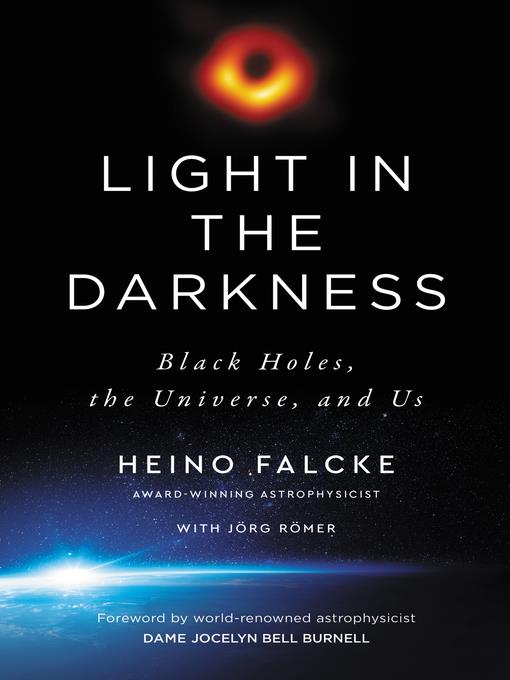
Light in the Darkness
Black Holes, the Universe, and Us
- اطلاعات
- نقد و بررسی
- دیدگاه کاربران
نقد و بررسی

April 15, 2021
A renowned German astrophysicist digs into the awesome mystery of black holes. Falcke--who captured the first photographic evidence of black holes, an incredible breakthrough--explains what we know about these captivating entities and discusses their historic, scientific, and spiritual significance. Black holes, voracious and enigmatic, have long held humanity's attention, even before there was proof positive of their existence. "Gravity monster, cosmic feeding machine, hellish abyss: no superlative is big enough to describe a black hole," writes Falcke, whose accessible prose and genuine wonder make for consistently enjoyable reading. "Black holes are the dinosaurs of astrophysics, as popular as the Tyrannosaurus rex, despite or even precisely because of their fearful reputation." The unique physical properties of black holes have launched innumerable thought experiments and continue to push the boundaries of physics. Merging crisp science writing with personal memoir, the author surveys astronomy, past and present. "Galaxies tell us of the beginning of space and time, the Big Bang," he writes. "Black holes represent the end of time." Falcke, a self-described man of faith as well as an expert in modern physics, argues that black holes--and the ability to capture them on film--offer endless opportunities for introspection: "What comes together in the image, then, is the entire history of physics and astronomy's development, plus emotion, mythical excess, intelligent silence, the act of gazing up at the stars, the measurement of the Earth and of space, the understanding of space and time, the most advanced technology, global collaboration, human tension, the fear of being lost, and the hope for something fully new." This vital insight reflects a recurring theme: what it means to be human in the pursuit of mind-bending scientific knowledge. A compelling insider's look at an ongoing investigative journey.
COPYRIGHT(2021) Kirkus Reviews, ALL RIGHTS RESERVED.

May 1, 2021
German astrophysicist Falcke was key to the project known as the Event Horizon Telescope (EHT), which in 2019 produced the first-ever image of a black hole. Theorized to exist by solutions to general relativity's equations, black holes struck Einstein as mathematical abstractions, not as real physical objects. Indeed, their actuality had to await scientific discoveries that Falcke clearly explains (the expanding universe, quasars, pulsars) and a way to see them, namely radio waves. Falcke shares glimpses into his childhood inspirations and education and why he has devoted his career to finding and analyzing black holes, leading up to the quest to take a picture of a galaxy's central black hole. Falcke's group targeted M87, a spiral giant 55 million light-years distant. The ""camera"" consisted of radio telescopes around the world linked by a technique called interferometry, which effectuates a single telescope the diameter of Earth. Falcke conveys all the drama of EHT's revolutionary triumph and addresses the popular fascination with black holes as dread places where space-time ends, which may also be where, as he suggests in writing about his faith, God begins.
COPYRIGHT(2021) Booklist, ALL RIGHTS RESERVED.




دیدگاه کاربران